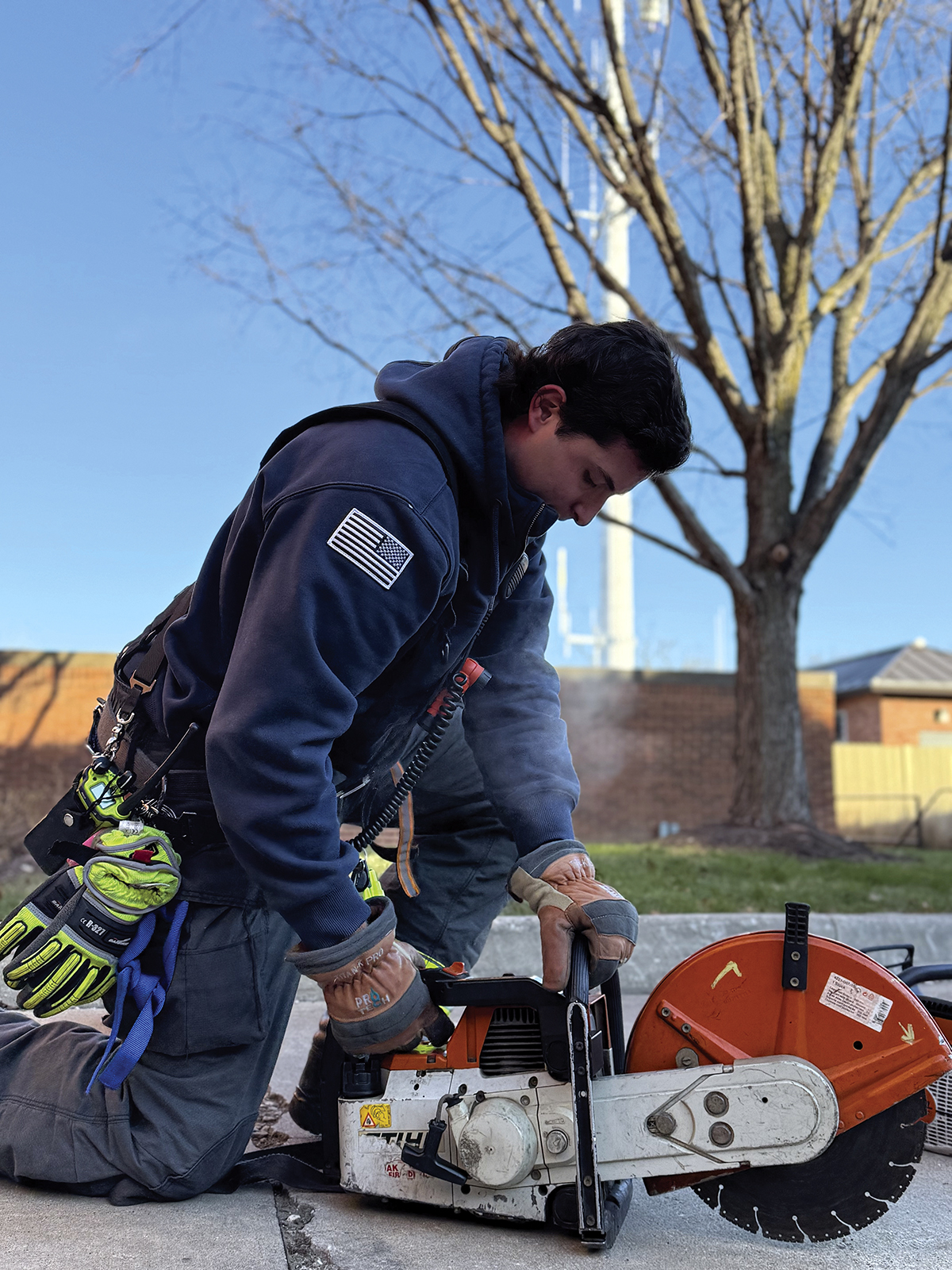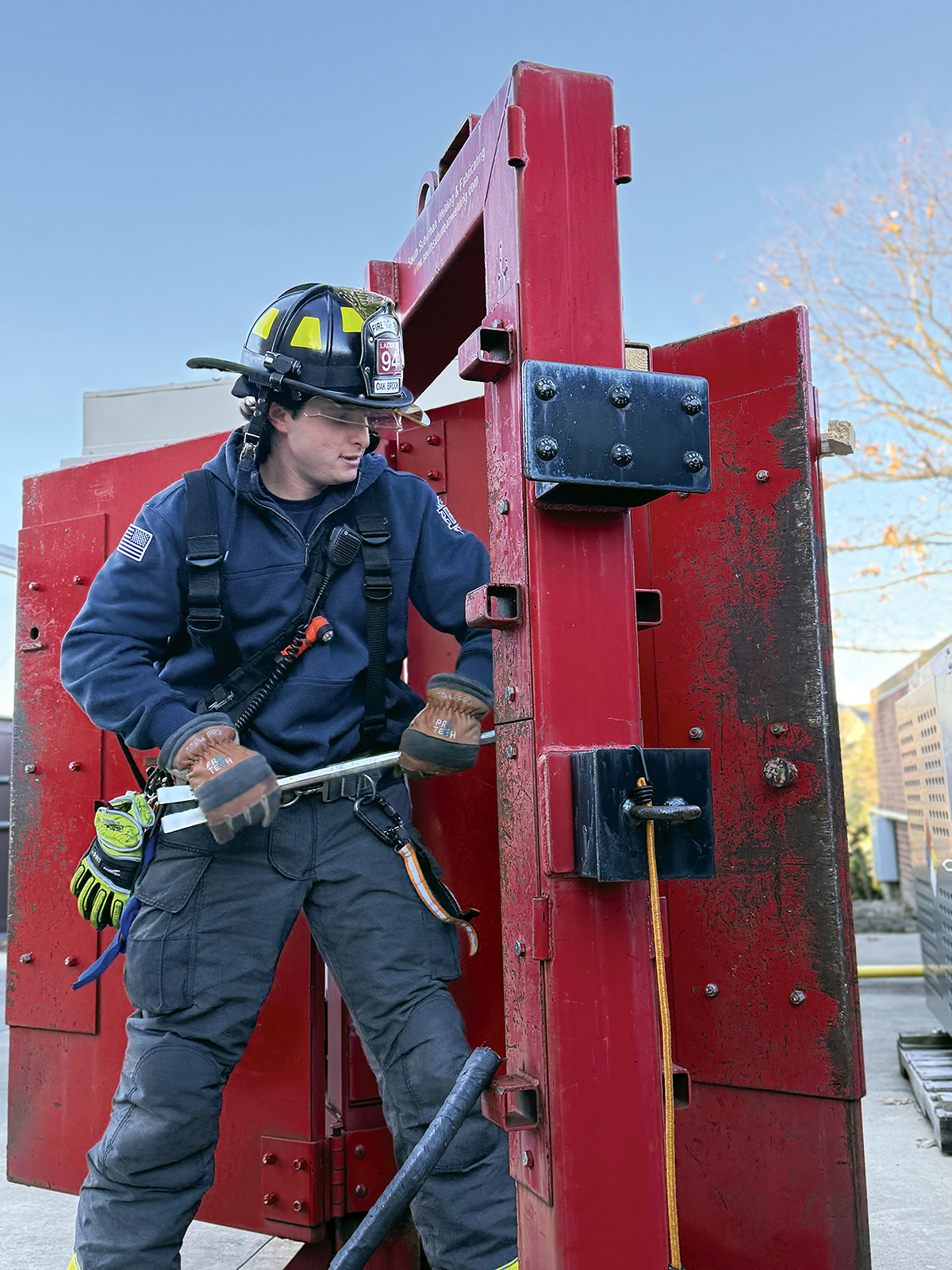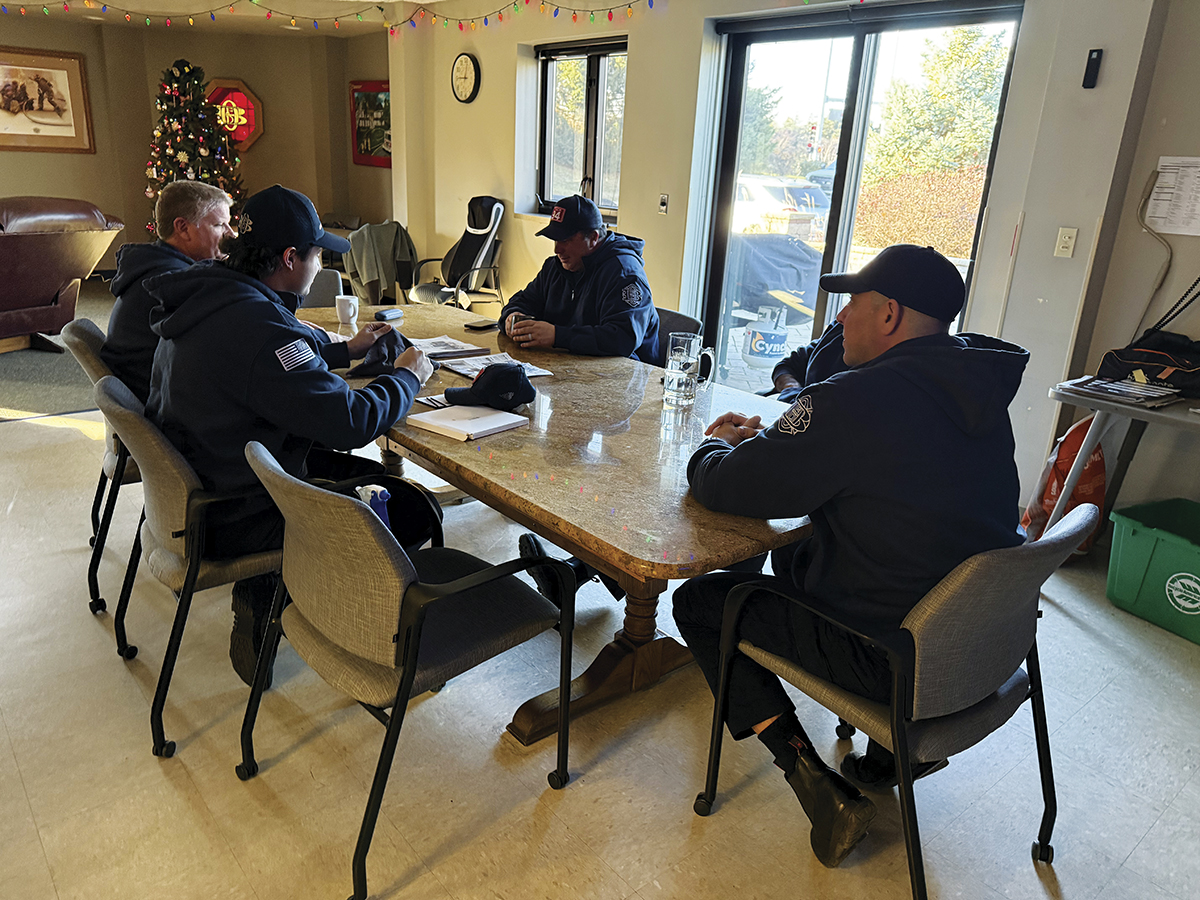Blazing Courage: Oak Brook Fire Department’s Adam Eboli
Like many people, Adam Eboli chose to work in his hometown. It’s where his family is. It’s where his roots were planted.
But unlike other people, Eboli has a unique job: he’s a firefighter and a paramedic. So, it’s his responsibility to help keep his hometown safe. And that’s quite the ask of any kid growing up in Oak Brook.
“A lot of guys don’t want to work in the town they grew up in or another town their family is from because that’s a hard thing to do if your family is the one to call you, right? [You have] to take your head out of that space and be able to treat them as if they’re not your family,” Eboli said. “And then there’s the other side of the coin, you know, maybe people more like me, where I almost wanted to do it.
Eboli’s aunt has multiple sclerosis, and his grandma has uterine cancer. They both live in Oak Brook. Eboli feels lucky that he’d be able to help them if needed. But, if anyone in his inner circle were forced to dial 911, he knows they’d be safe—whether or not he’s at work.
“Knowing that if it isn’t me going there to help them, I know every single guy that is going to be there to help them. That makes me feel really comfortable, and that means a ton to me,” Eboli said. “I love the fact that if my family, God forbid, knock on wood, ever needed to call 911, they’ve got 27 of the best guys coming their way to help them out. And that makes me feel extremely comfortable.”
There’s not much of a higher com-pliment you can give your coworkers. Eboli is adamant that the Oak Brook Fire Department (OBFD) is the best of the best—a group of men willing to help anyone in need at any hour of the day.
“It is a phenomenal group of guys,” Eboli said. “You have 27 of some of the best guys out there.”
Aside from a servant’s heart and a passion for selfless work, being a firefighter and a paramedic takes extensive training, and not everyone makes the cut. It takes years of mental and physical toughness, deliberate dedication, and lots of sleepless nights.
“Paramedic school is about a year long. It includes three days a week, in person, in class, combined with over 600 hours of clinical time in the hospital, between ER, surgical, psychiatric, and all the fields you can think of, and then another 600 hours of ambulance ride time at a fire department,” Eboli said.
He remembers it as a very intense year of his life.
“I’d go to class at eight in the morning, get out of class at three in the afternoon, do a clinical from three in the afternoon till about eight or nine at night, and then I’d go work an overnight shift at my job,” Eboli said. “And I’d do overnight from like 11 to four in the morning, sleep for a couple of hours, then go do ambulance ride time from like seven for another 15 hours.”
This grueling process didn’t sway Eboli from pursuing this career. Instead, it made him even more confident in his decision.
“I ran into what I believe is the career that is my dream career, the career that I love to do, something that makes me extremely happy,” Eboli said. “It sounds like a lot, but at the moment, it was more fun than anything.”
“Would I want to do it again? Absolutely not,” Eboli laughed.
The training, both in paramedic school and later at the fire academy, is preparation for the real-world schedule: 24 hours of work followed by 48 hours off. Eboli has gotten used to this grind, which he much prefers to his previous corporate nine-to-five, but he’s still learning every day on the job.
“You don’t learn how to be a paramedic until you become a paramedic. And that’s the hard truth about this job. There’s no written exam, there’s no simulation practical, there’s no live burn day. There’s no fake car crash that can remotely simulate the actual experience of being in the moment when that actually goes down, you know, going into an actual burning building,” Eboli said. “There’s no simulation that preps you for that. They do the best they can, and it is phenomenal training. But I think most people would agree, there’s nothing that can simulate that stuff. There’s nothing that simulates the smells, the sounds.”
Eboli, who has been at the OBFD for almost two years, is thankful to have this team helping guide him every step of the way.
“I got so lucky because, I mean, every day they go out of their way to teach me different things: taking me into the bay, taking me through the truck… It was really cool to see them go the extra mile just so I can learn something,” Eboli said. “Eventually, you start to realize that, at first, they’re just mentors, and you got to earn your way into the family. You don’t just become family right away.”
Family is exactly how he described the OBFD. At first, he was worried about fitting in as the “new guy.” But, the seasoned pros quickly took Eboli under their wings like a little brother, picking on him when appropriate and cheering him on when necessary.
“This isn’t a career where you can come in, put on a fake face, and then leave at 5 P.M. like, sorry, you’re stuck with me. You’re gonna live [here], we’re gonna find out who you really are. We’re gonna see all your habits…so it is really a family atmosphere.”
Besides camaraderie, though, Eboli said this group stands out for their genuine skills. They’re not just guys hanging out at the firehouse bickering over who drank the last of the coffee; they’re highly trained individuals who are prepared and ready to help during life’s scariest moments.
“It’s the amount of experience, expertise, knowledge, and skill that we have in our small department. I think it is a really unique combo set,” Eboli said.
“This town is super fortunate,” Eboli continued, “because…financially, we’re a very flourishing town…We get brand-new rigs and brand-new equipment. The best life-saving equipment you can ask for. You’ve got the guys with the skill set behind all that nice gear to back it up.”
Eboli is excited to go to work each day. He gets to see his newfound brothers, serve his community, and—most days—learn something new. 



